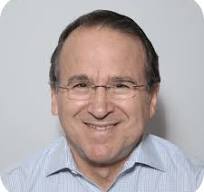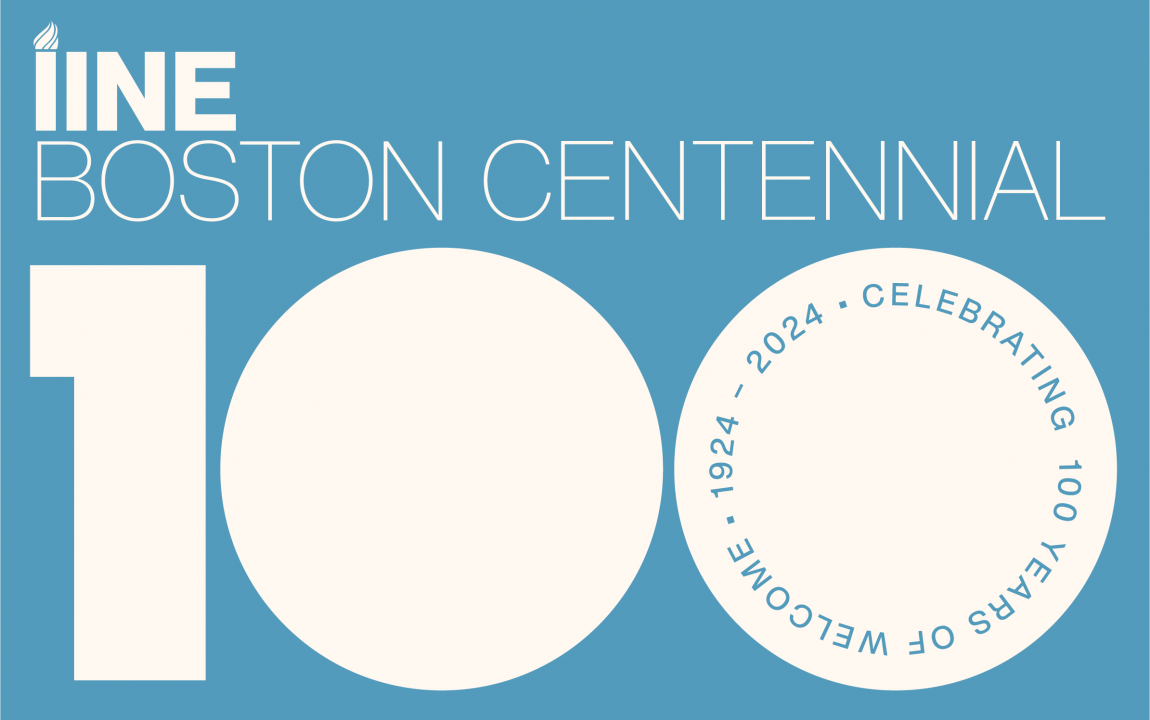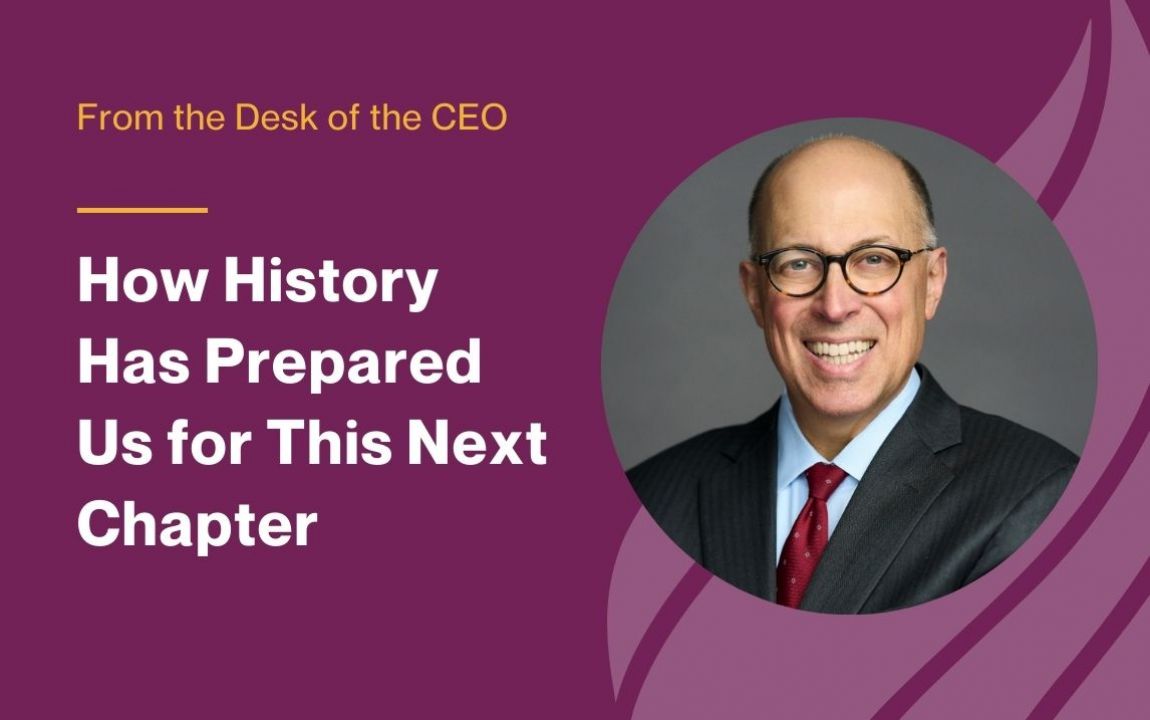Q&A With New Board Member Richard Golob
Richard Golob brings broad experience at the international level, from global environmental issues to outsourcing in numerous countries, to his new role on the International Institute of New England’s Board of Directors. In addition to leading Quantori, Inc., one of the world’s leading data sciences and digital transformation services companies in the life sciences and healthcare sectors, Richard serves on the Leadership Board of Beth Israel Deaconess Medical Center, is a Board Member of the United Nations Association of Greater Boston and the Anti-Defamation League – New England, and serves as President of the Puchovichi Memorial Park Project. Richard received his A.B. degree in Biochemical Sciences from Harvard College.
We spoke with Richard to learn more about his career path, his personal connection to IINE’s mission, and what he’s looking forward to most in joining the board.
Can you share a bit about yourself?
 I am the grandson of immigrants who came through Ellis Island. Two of my grandparents emigrated from Russia, one from Belarus, and one from Austria. So, I was raised on the concept that America is a great nation – because it is multi-racial, multi-ethnic, multi-lingual, and multi-religious – and that it’s a place where people from around the world can come to find a new life and to prosper.
I am the grandson of immigrants who came through Ellis Island. Two of my grandparents emigrated from Russia, one from Belarus, and one from Austria. So, I was raised on the concept that America is a great nation – because it is multi-racial, multi-ethnic, multi-lingual, and multi-religious – and that it’s a place where people from around the world can come to find a new life and to prosper.
Because of my upbringing, I have been involved with international activities for most of my life – whether it was raising humanitarian relief funds for the victims of the Nigerian Civil War as a high school student in New York, or communicating with scientific correspondents from around the world about major environmental events in one of my first jobs at the Smithsonian Institution’s Center for Short-Lived Phenomena.
In 2001, my career shifted from the environment field to global outsourcing, and I co-founded a scientific informatics outsourcing company, GGA Software Systems. At GGA, we hired software engineers, mathematicians, and scientists almost exclusively in Russia, and they worked with clients in the United States and Europe. This international collaboration appealed to me because it was a chance to bring together thousands of people who were historically at odds with one another and have them work in partnership to develop effective, innovative solutions.
Today, I oversee Quantori, a data science and digital services company for the life sciences and healthcare sectors. We founded the company five years ago, again hiring professionals primarily in Russia. When Russia invaded Ukraine, we had to work quickly to move our colleagues out of Russia and provide comprehensive support to find them and their families housing, healthcare, and education in Armenia, Georgia, Kazakhstan, and other countries. At Quantori, we were undertaking the type of work that the International Institute of New England does every day and were fortunate to be able to help our colleagues find safety in a new home.
Speaking of, tell us about your journey to IINE.
I have been involved with nonprofits, including organizations in the international arena, for a long time and have been on the board of the United Nations Association of Greater Boston since the early 2000s, during which I spent many years as the President. Through this work, I met Christina Bai, who was on IINE’s board. She introduced me to the organization’s work, and I attended a few events. I became very impressed with IINE’s impact. I knew I wanted to contribute to the mission of helping refugees, asylees, and unaccompanied children to build new lives and enrich our country.
Is there someone you honor by supporting IINE?
I honor my grandparents and the voyage they embarked on in the late 1890s/early 1900s to come to the Unites States. That was certainly a difficult voyage, and building a new life in the United States was difficult too. They persevered, while instilling in their children an excellent work ethic and moral code.
I think of my Belarusian grandfather, in particular. Because of the Iron Curtain, our family never had a chance to visit his hometown of Puchovichi. When I began traveling to Russia for work after 2001, I decided to visit Puchovichi, and I became the first member of my family to return to my grandfather’s hometown. A local history teacher gave me a tour of the area, and then, because he knew of my Jewish heritage, he brought me to a remote area outside of the town. We walked across a large agricultural field and climbed up a hill covered in vines and bushes. At the top, my guide told me that, on September 22, 1941, the Nazis had gathered 1,260 Jews from the area, brought them to the top of the hill, murdered them, and buried them in two large pits there. I remember standing on the hilltop, deeply saddened by this tragedy that I had just learned about, and thinking how grateful I was that my grandfather had left Belarus when he did. If he had stayed in Puchovichi, he would have been one of the victims in the pits, and my family would never have survived to enjoy a new life in the United States.
The refugees and immigrants that IINE serves – they, too, are escaping conflict zones to give themselves and their families a chance at a better life. Because of their bravery, their future generations will live here in the United States safely – just as I do because of my grandfather’s decision to leave Belarus.
What do you consider a board member’s most important responsibilities?
First and foremost, it’s to provide oversight – to ensure that the organization has sound financial footing and an effective program for the future.
As a board member, I like to think creatively about an organization and its programs – not just where it is today, but where it might be in five or ten years, and not just the programs it has now, but the programs it might consider for the future or how to innovate the existing programs in a way that’s more effective and still in keeping with its mission.
What excites you most about IINE’s future?
We know the need for IINE’s services will only grow, and right now, IINE’s work is front and center. I look forward to helping ensure we are able to provide the same and enhanced services to current clients and to the many more refugees and immigrants that will come to IINE seeking support – no matter who wins the November election for President.
IINE’s Board of Directors includes corporate and community leaders from across New England. View our members and leadership team here.
Related Articles

The International Institute of New England Names Hannah Odaa as Boston Managing Director

2005–2014: Bringing Families Together
